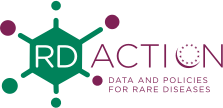Cyprus
Visual Recap
Contributor‘s names
Summary of Rare Disease Activities in Cyprus*
(Full report accessible below)
The Cyprus National Strategic Plan for Rare Disease (CNSPRD) was adopted in November 2012 by the Council of Ministers. There is no dedicated funding to support the activities defined in the Strategic Plan; however, a dedicated body – the multistakeholder ‘National Committee for Rare Diseases’ – is tasked with implementing and monitoring the CNSPRD. The major successes to-date include raising public awareness of RD, increased patient empowerment, the provision of nationwide education, and the inclusion of RD to the political agenda.
Cyprus has adopted an official national policy for the designation of Centres of Expertise for RD, based upon the EUCERD criteria; currently, there are 2 centres which comply with this policy. In view of this official process, Cyprus is able to participate in European Reference Networks: 2 HealthCare Providers are currently members of 2 ERNs. Specific actions exist to enable people with rare diseases to gain access to general social/disability programmes in Cyprus: a multidisciplinary/interministerial working group for RD, which includes representatives from the Ministry for Social Affairs/Services, acts as a mechanism to facilitate multidisciplinary, holistic, continuous care provision, and several proposals exist in the CNSPRD to ensure further social integration for people affected by RD.
Neither national nor regional rare disease registries exist in Cyprus; however, disease-specific registries are available. The national neonatal screening programme includes 2 rare diseases (congenital hypothyroidism and phenylketonuria), along with screening for congenital hearing defects. According to the Orphanet database, Cypriot laboratories offer tests for 70 genes and 96 RD (excluding panels).
The Clinical Genetic Clinic within the Archbishop Makarios III hospital hosts the Cypriot Orphanet team. Although there is no funding specifically dedicated to these activities, the team has been able to collect data on patient organisations, healthcare professionals, clinical labs, and genetic testing. Cyprus is not currently a member of either E-Rare or IRDiRC. Specific RD research projects are funded from the general research budget in Cyprus, and there is policy decision to allocate a portion of the national research budget specifically to rare disease-related research.
CARD, the Cyprus Alliance for Rare Disorders, strives towards patient empowerment, increased awareness of rare diseases, Participation in healthcare reform projects, providing support to patients, and ensuring meaningful engagement in the CNSPRD
Full 2016 report on Rare Disease Activities in Cyprus
*NB – The findings and conclusions in this report are those of the contributors and validating authorities, who are responsible for the contents; the findings and conclusions do not necessarily represent the views of the European Commission or national health authorities in Europe. Therefore, no statement in this report should be construed as an official position of the European Commission or a national health authority.
Information supplied by the Cyprus SOA Data Contributing Committee:
- Competent National Authority – Violetta Anastasiadou
- Orphanet National Representative – Violetta Anastasiadou
- National Patient Alliance Representative – Androulla Eleftheriou





























